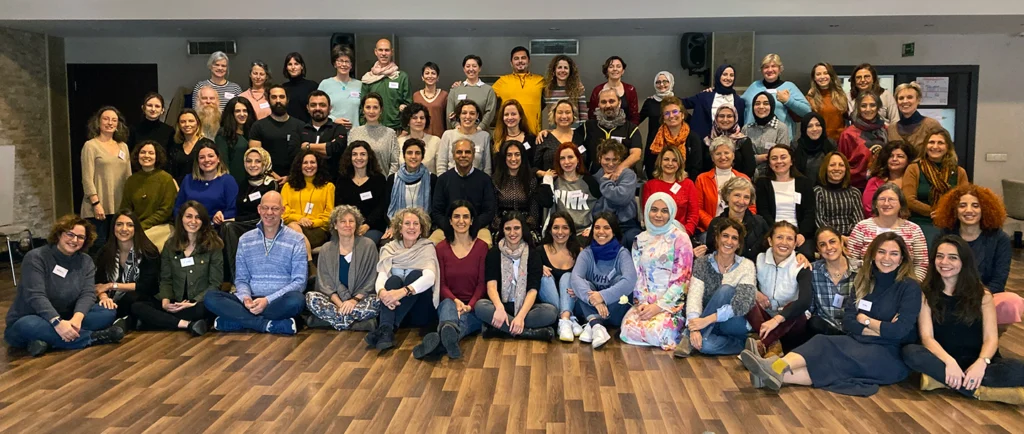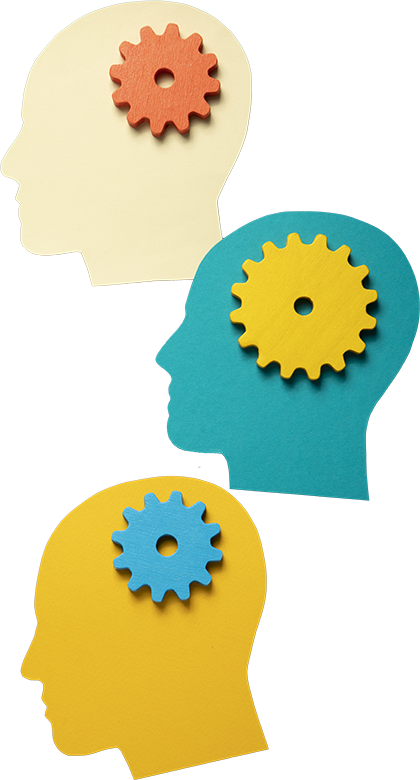An applied method for emotional work and trauma treatment, ISP has been developed to shorten therapy duration and improve diverse outcomes in all therapeutic modalities.
Add an effective, research-based tool to your toolkit:
ISP is an easy-to-learn scientific approach for integrating and embodying body and energy into all the modalities you use in your practice. You will experience a profound change in your therapeutic approach, deep transformation for yourself and your clients, while building competence and confidence, getting quick and enduring therapeutic results.
- Knowledge of the latest findings on the neurophysiology of cognition, emotion, and behavior.
- How to identify and undo somatic and energetic defenses against emotions.
- How to use your body to increase your capacity for interpersonal resonance with your clients to interactively regulate them.
- Knowledge and skills for working with psychophysiological (psychosomatic) symptoms.


About Dr. Raja Selvam
Dr. Raja Selvam is an internationally recognized expert in clinical psychology from the United States. He is the developer of Integral Somatic Psychology™ (ISP™), and a member of the senior faculty in Peter Levine’s Somatic Experiencing® (SE™) training program. With nearly thirty years of experience, Raja has taught in over 20 countries across six continents. His work integrates elements of Jungian and archetypal psychology, Kleinian and intersubjective psychoanalysis, neuroscience, quantum physics, yoga, polarity therapy, and Advaita Vedanta (a spiritual psychology from India).
How Dr. Selvam’s Work Will Benefit You
Integral Somatic Psychology is an effective somatic therapy that can be used as a complementary approach by therapists in all modalities:
- Learn to identify and work with a wider range of emotions from the very first session
- Help your clients undo body and energy defenses against emotion
- Build tolerance for all feelings—especially the uncomfortable ones
- Improve cognitive and behavioral outcomes in your work through embodying emotions
- Improve your results in working with psychophysiological or psychosomatic symptoms
- Help clients heal from traumas efficiently
- Help clients heal their attachment wounds effectively
- Shorten treatment times
What is the science behind it?
The emerging science of embodied cognition, emotion, and behavior in affective neuroscience and cognitive psychology is increasingly establishing that our thoughts, feelings, and actions are dependent not just on our brain but also on our body and our environment; and that the lack of involvement of our body in any of these three interrelated functions can compromise all three and reduce our well-being.
The field of body psychotherapy has established that our inability to tolerate emotional experiences in our bodies is the primary reason for the formation of physiological defenses such as muscular constriction. These defenses reduce our body’s involvement in cognitive, emotional, and behavioral functions and cause psychophysiological symptoms.
Using these research findings, Integral Somatic Psychology seeks to improve our thoughts, feelings, and actions by making our body more available for them. Improving the body’s capacity to tolerate emotional experiences, ensures it will not shut down in the face of difficult emotions in therapy or life.
ISP is the catalyst that improves your work in any modality in your toolkit.
Is ISP the training you're looking for?
- A complementary modality that can improve diverse outcomes (physical, energetic, cognitive, emotional, behavioral, relational, and even spiritual) in all the modalities you are trained in
- A catalyst that can reduce treatment times across the board in all the modalities you practice
- The possibility for engaging your clients as well as yourself in deeply transformative work
- A multi-layered treatment approach that works with the body, the soul, and the spirit to draw on individual as well as collective resources to optimally resolve your clients’ difficulties
- A comprehensive model of the psyche that brings together and makes sense of all the previous somatic, energetic, psychological, and spiritual approaches you are trained in
- A body-based, energy-based, and science-backed capstone master training in just twelve days, in three modules of four days each, taught exclusively in English.
- An easy-to-learn scientific approach for integrating and embodying body and energy into all the modalities you use in your practice
- A relatively easy-to-learn effective approach to access and work effectively with emotions through the body even in clients who do not appear to have access to emotions
- The knowledge of the latest findings on the neurophysiology of cognition, emotion, and behavior
- The knowledge and skills for how to identify and undo somatic and energetic defenses against emotions
- The knowledge and skills for how to use your body to increase your capacity for interpersonal resonance with your clients to interactively regulate them
- The knowledge and skills for working with psychophysiological (psychosomatic) symptoms

Integral Somatic Psychology Professional Training
The ISP Professional Training is a premium training consisting of three 4-day training modules. Each day starts with a lecture followed by a demonstration session. After lunch you will be able to practice the new material during clinical practice sessions under live supervision of a mentor.
Module 1:
In this first module of the training, we will learn the science of embodied cognition, emotion, and behavior and the four steps of the practice of emotional embodiment to help improve diverse outcomes in all therapies.
We will also learn how we can facilitate greater embodiment of emotional experiences through the physiology of the muscles of the arms, legs, face, throat, and neck. In addition, we will begin to learn how we can work with the elemental archetype of air to help facilitate the embodiment of emotions.
- The science of embodied cognition, emotion, and behavior
- The four steps of the practice of embodying emotions
- Different types of emotional experiences
- The role of the muscular system in generating and defending against emotional experience
- Clinical strategies for working with the arm and leg muscles for facilitating emotional embodiment
- Clinical strategies for working with the face, throat, and neck muscles for facilitating emotional embodiment
- Clinical strategies for working with the elemental archetypes, air in particular, for facilitating emotional embodiment
Module 2:
In this second module of the training, we will learn how we can facilitate greater embodiment of emotional experiences through the physiology of the torso musculature and the diaphragms of the torso, and of the organs, glands, and blood vessels governed by the autonomic nervous system.
We will also study how we can facilitate greater embodiment of our emotional experiences in our brain and body by connecting the individual to additional elemental archetypal resources at different levels of the collective.
- The role of the torso musculature and the diaphragms of the torso in generating as well as defending against emotional experiences
- Clinical strategies for working with the physiology of the torso musculature and the diaphragms of the torso for facilitating the process of emotional embodiment
- The role of the autonomic nervous system and the areas of governed by it (organs, glands, and blood vessels) in generating as well as defending against emotional experiences
- Clinical strategies for working with the autonomic nervous system and the areas of governed by it for facilitating the process of emotional embodiment
- The role of the elemental archetype of ether in emotional experience
- Clinical strategies for working with the elemental archetype of ether for facilitating the process of emotional embodiment
- The role of the elemental archetype of air in emotional experience
- Clinical strategies for working with the elemental archetype of air for facilitating the process of emotional embodiment
- The role of the elemental archetype of water in emotional experience
- Clinical strategies for working with the elemental archetype of water for facilitating the process of emotional embodiment
Module 3:
In this third and final module of the training, we will learn how we can facilitate greater embodiment of emotional experiences through the physiology of the brain, the spinal cord, and the structures that surround and protect them (cerebrospinal fluid, membrane, bone, fascia, tendon, ligament, muscle).
We will also study how we can facilitate greater embodiment of our emotional experiences in our brain and body by connecting the individual to additional archetypal resources at different levels of the collective than were seen in earlier modules.
- The role of the central nervous system area of the brain and spinal cord and surrounding structures in generating as well as defending against extraordinary psychological and physiological and experiences of stress and trauma
- Clinical strategies for working with the physiology of the brain and spinal cord and surrounding structures when working with extraordinary psychological and physiological experiences of stress and trauma in psychological work settings
- The role of the central nervous system areas of the brain and spinal cord and surrounding structures in generating as well as defending against ordinary but difficult physiological and psychological experiences in the course of development (as opposed to extraordinary experiences, stress and trauma)
- Clinical strategies for working with the central nervous system area of brain and spinal cord and surrounding structures during psychological work with ordinary but difficult experiences in the course of development (as opposed to the extraordinary experiences of stress and trauma)
- Clinical strategies for connecting the individual more to the resources of the basic elemental archetype of fire with intensity and clarity as its primary attributes, for accessing, expanding, and regulating our emotional experiences in psychological work settings
- Clinical strategies for connecting the individual more to the resources of the basic elemental archetype of earth with structure and stability as its primary attributes, for accessing, expanding, and regulating our emotional experiences in psychological work settings
- Clinical strategies for facilitating the interactions between the individual and the collective at the higher end of the archetypal continuum, at the level of the Self and beyond, to mobilize the highest possible resources of the collective for accessing, expanding, and regulating our emotional experiences in psychological work settings
Do you want to help your clients as quickly as possible?
Do you have the courage to engage in deep transformative work?
Are you willing to use all levels of the psyche (body, soul, and spirit) to resolve symptoms as quickly and efficiently as possible?
If the answer is “yes” to any of these questions, ISP Professional Training will greatly enhance your professional work and practice.
Full Course
-
Save when you pay for all modules in advance
Individual Module
-
Price for each module separately
Upcoming training
Cohort of 2024 – Registration Closed. Enrollment for Cohort 2025 is Open!
An annual course consisting of three immersive study units:
Module 1: November 14-17, 2024
Module 2: April 10-13, 2025
Module 3: November 20-23, 2025
Cohort of 2025 – Registration open
An annual course consisting of three immersive study units:
Module 1: December 7-10 2025
Module 2: April 26-29 2026
Module 3: November 2-5 2026
Training Hours: 10:00 – 18:00
Live Online course on Zoom: Offering the convenience of learning from home.
Course language: English, with simultaneous translation into Hebrew.
Information & Registration
Cancellation & Refunds
- If an applicant is denied access to the training, for any reason, a full refund will be issued.
- If a training module is cancelled by ISP, a full refund will be issued.
- If a training module is rescheduled, tuition will be transferred to the rescheduled training, or another location. No refund will be issued.
- If a student cancels a training at least 21 days prior to a training module, a full refund will be issued, less a $75 nonrefundable cancellation fee.
- If a student cancels a training within 20 days of the start date of a training module, a 50% refund will be issued for the tuition for that module; if the student paid in advance tuition for additional future training modules, a full refund will be issued for tuition for those additional future training modules.
- No refunds will be issued for no-shows.
- No refunds are issued to students who miss a portion of the live training.
